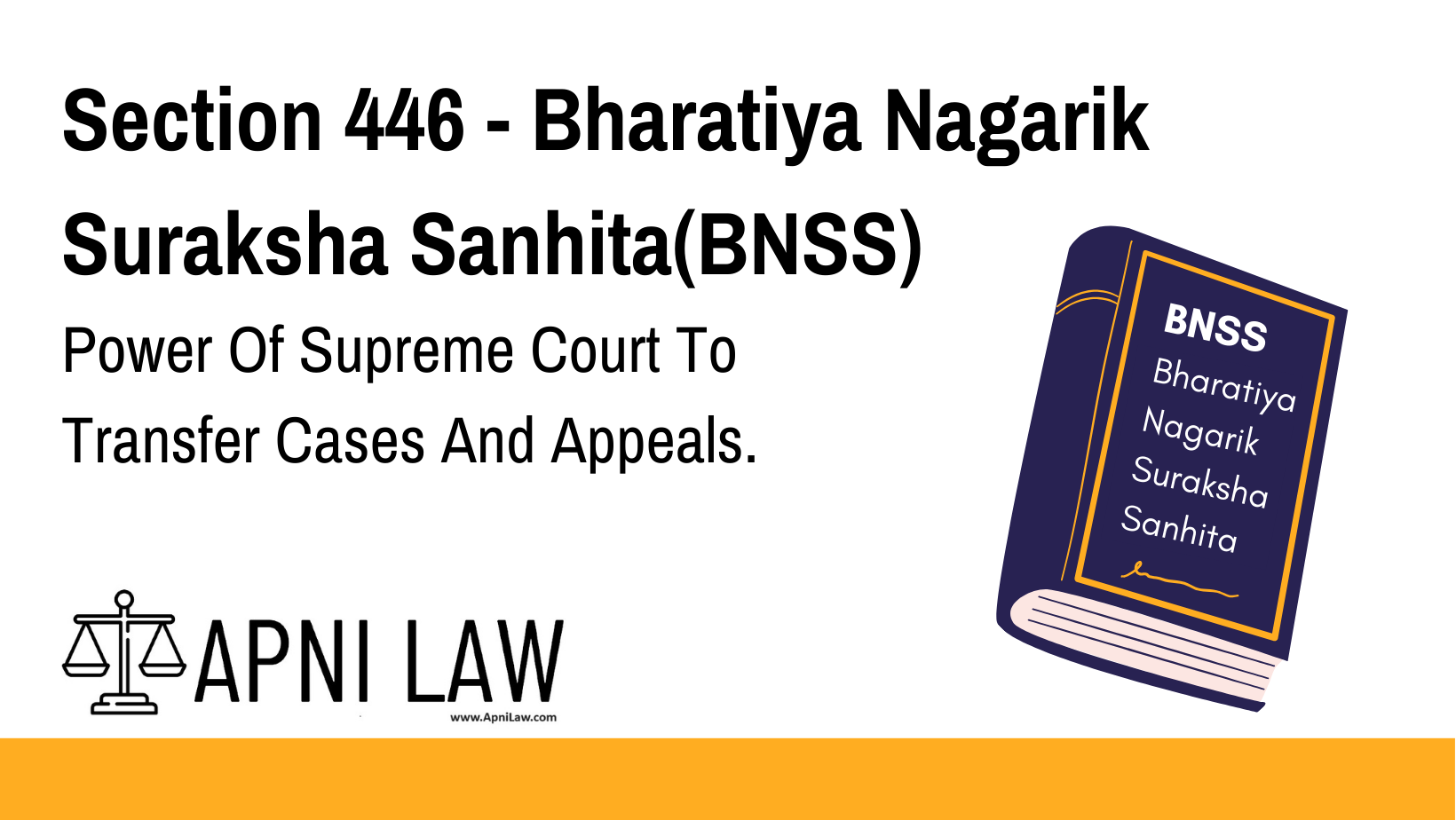Code: Section 446 BNSS
(1) Whenever it is made to appear to the Supreme Court that an order under this section is expedient for the ends of justice, it may direct that any particular case or appeal be transferred from one High Court to another High Court or from a Criminal Court subordinate to one High Court to another Criminal Court of equal or superior jurisdiction subordinate to another High Court.
(2) The Supreme Court may act under this section only on the application of the Attorney-General of India or of a party interested, and every such application shall be made by motion, which shall, except when the applicant is the Attorney-General of India or the Advocate-General of the State, be supported by affidavit or affirmation.
(3) Where any application for the exercise of the powers conferred by this section is dismissed, the Supreme Court may, if it is of opinion that the application was frivolous or vexatious, order the applicant to pay by way of compensation to any person who has opposed the application such sum as it may consider appropriate in the circumstances of the case.
Explanation of Section 446 BNSS
Section 446 of the Bharatiya Nagarik Suraksha Sanhita, 2023 (BNSS) grants the Supreme Court the power to transfer cases and appeals between High Courts or from one Criminal Court to another when it is necessary for justice.
Key Provisions
1. Authority of the Supreme Court
- The Supreme Court has exclusive jurisdiction under Section 446 BNSS to transfer cases when it is necessary to ensure a fair trial.
2. Grounds for Transfer
- The transfer can be made between High Courts or between subordinate courts of equal or superior jurisdiction.
3. Who Can Apply?
- The application can be made by:
- The Attorney-General of India
- An interested party (such as the accused, victim, or prosecution)
- Except for applications by the Attorney-General of India or the Advocate-General of the State, all applications must be supported by an affidavit or affirmation.
4. Penalty for Frivolous Applications
- If the Supreme Court finds the transfer request to be frivolous or vexatious, it can order the applicant to compensate the opposing party.
Illustrations of Section 446 BNSS
Example 1: Transfer Between High Courts
A case pending in the Delhi High Court involves serious allegations of bias. The Supreme Court, on application, transfers the case to the Bombay High Court to ensure an impartial trial.
Example 2: Transfer Between Subordinate Courts
A high-profile criminal case in a District Court under the Allahabad High Court raises concerns of local influence. The Supreme Court transfers it to a District Court under the Madhya Pradesh High Court.
Example 3: Frivolous Application
A businessman, accused of fraud, applies for a transfer to delay proceedings. The Supreme Court dismisses the application and orders him to pay compensation for wasting judicial time.
Common Questions and Answers on Section 446 BNSS
1. Who can request a case transfer under Section 446 BNSS?
The Attorney-General of India, the Advocate-General of the State, or an interested party can file an application.
2. Can the Supreme Court transfer any case?
Yes, but only if it deems the transfer necessary for justice.
3. What happens if a transfer request is rejected?
If the Supreme Court finds the application to be frivolous or vexatious, it can impose a penalty on the applicant.
4. Do all transfer applications need an affidavit?
Yes, except for those filed by the Attorney-General of India or the Advocate-General of the State.
5. Can a High Court transfer cases between states?
No, only the Supreme Court has this power under Section 446 BNSS.
Conclusion
Section 446 BNSS empowers the Supreme Court to transfer cases between High Courts and Criminal Courts when necessary for justice. It ensures that trials remain fair and free from bias, while also preventing frivolous transfer requests.
For more legal insights and expert analysis, visit ApniLaw today! 🚀








